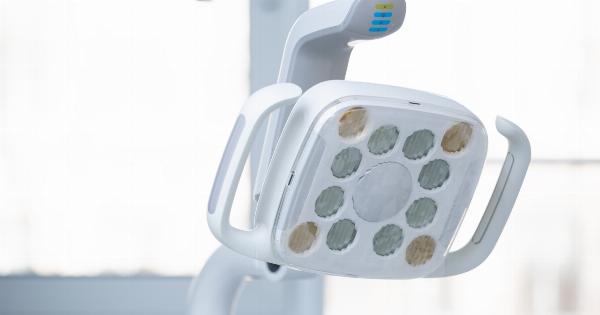Private dental practices are a popular choice among patients seeking dental care. However, there is a growing concern about the lack of proper dental care in privately managed dental practices.
This article explores the reasons behind the non-existent dental care in such practices and its implications on patients’ oral health.
Lack of Qualified Dental Professionals
One of the major reasons for the non-existent dental care in privately managed dental practices is the lack of qualified dental professionals.
These practices often hire inexperienced or underqualified dentists to cut costs, which compromises the quality of care provided. Without skilled professionals, patients may not receive proper diagnosis, treatment, or preventive care, ultimately leading to long-term oral health issues.
Focus on Profit
Privately managed dental practices are primarily driven by profit motives. This means that the main focus is often on generating revenue rather than providing comprehensive dental care.
Dentists in these practices may be pressured to upsell unnecessary treatments or perform unnecessary procedures to maximize profits. As a result, patients may end up receiving treatments that are not in their best interest or neglecting essential oral health care.
Limited Treatment Options
Due to the profit-oriented nature of privately managed dental practices, there is often a limited range of treatment options available.
These practices may prioritize procedures with higher profit margins, such as cosmetic dentistry, while neglecting essential services like preventive care or restorative treatments. As a result, patients may not have access to the complete range of treatments necessary for maintaining oral health.
Inadequate Dental Equipment and Technology
Providing high-quality dental care requires proper equipment and technology. Unfortunately, privately managed dental practices may cut corners by using outdated or low-quality equipment to save costs.
This can significantly impact the accuracy and effectiveness of diagnostic procedures and treatments. Without advanced technology, dentists may struggle to provide the level of care necessary for optimal oral health outcomes.
Short Appointment Times
Time is money in privately managed dental practices, and this often results in short appointment times. Dentists may rush through procedures or consultations to accommodate more patients and increase revenue.
Consequently, patients may not receive the attention and personalized care they require. Short appointment times can also lead to missed diagnoses, inadequate treatment planning, and limited patient education on oral health maintenance.
Lack of Continuity of Care
In privately managed dental practices, it is common to see changes in dentists frequently. Dentists may leave the practice or be replaced by new practitioners, resulting in a lack of continuity of care.
Patients may have to start over with new dentists who may not have access to their complete dental history or understand their specific needs. This lack of continuity can hinder accurate treatment planning and result in fragmented oral care.
Higher Cost of Treatment
Contrary to popular belief, the cost of dental care in privately managed dental practices is often higher compared to public dental clinics or insurance-based practices.
The focus on profit can lead to inflated prices for treatments, as the practice aims to cover overhead costs and maximize revenue. This can deter patients from seeking necessary dental care, ultimately impacting their oral health.
Lack of Emphasis on Preventive Care
Preventive care is the cornerstone of maintaining good oral health. However, privately managed dental practices may not prioritize preventive care as it does not generate significant revenue.
These practices may be more inclined to focus on treatments and procedures rather than investing time and resources in educating patients about preventive measures. Without proper emphasis on preventive care, patients may face a higher risk of developing oral diseases and complications.
Neglected Oral Health Education
Proper oral health education plays a crucial role in maintaining good dental hygiene and preventing oral diseases. Unfortunately, privately managed dental practices often neglect this aspect of care.
Dentists in these practices may not spend adequate time educating patients about oral hygiene practices, diet-related concerns, or the importance of regular dental check-ups. This lack of education can lead to patients having insufficient knowledge about oral care and exacerbating their dental problems.
Impact on Patient Satisfaction
The non-existent dental care in privately managed dental practices inevitably affects patient satisfaction. Patients may feel rushed, overlooked, or dissatisfied with the quality of care received.
This can create a negative perception of dental visits and discourage regular dental check-ups, leading to a decline in overall oral health. Additionally, the lack of comprehensive care in these practices can result in patients seeking additional treatments elsewhere, incurring extra costs and inconvenience.
Conclusion
Non-existent dental care is a concerning issue prevalent in privately managed dental practices.
The lack of qualified professionals, profit-driven mentality, limited treatment options, and neglect of preventive care contribute to subpar oral health outcomes for patients. It is crucial to prioritize patient well-being and advocate for comprehensive dental care that is accessible, affordable, and focused on long-term oral health maintenance.

























